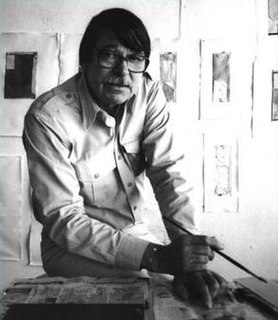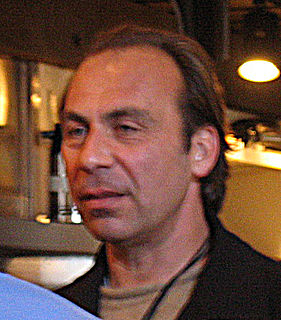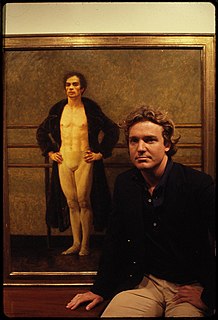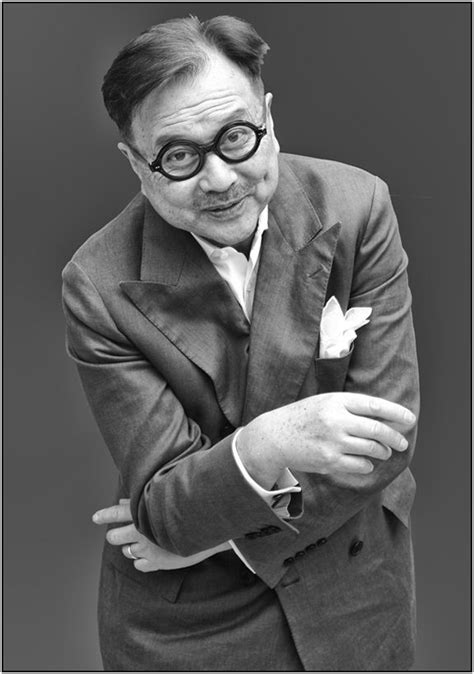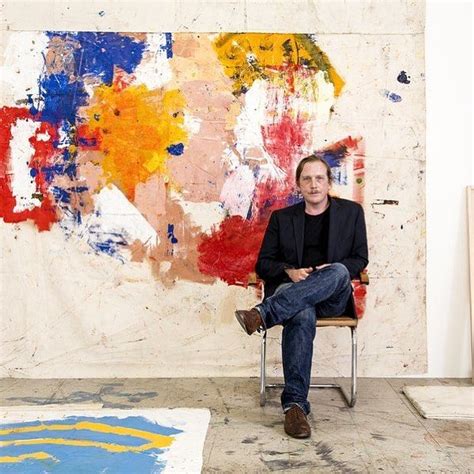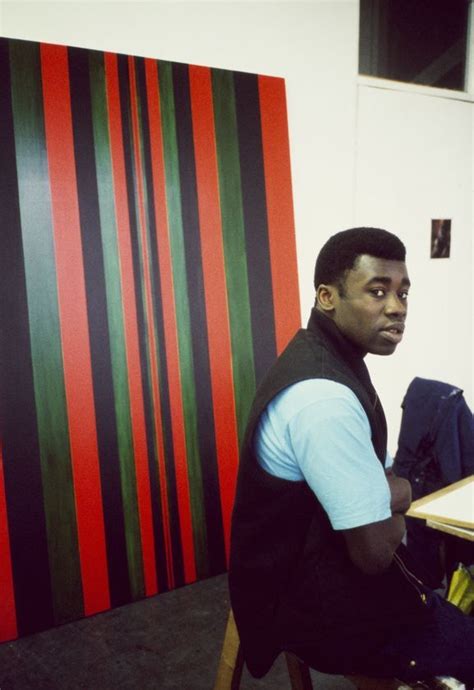A Quote by Richard Diebenkorn
I want a painting to be difficult to do. The more obstacles, obstructions, problems - if they don't overwhelm - the better. I would like to feel that I am involved at any stage of the painting with all its moments, not just this 'now' moment where a superficial grace is so available.
Related Quotes
Most people don't really like to pose. It is difficult to get them to be present and relaxed under this kind of molecular scrutiny. I want them to understand I'm not simply painting them: I am painting them within a precise moment in time, as a shadow moves across their eyebrows. Then it is gone. The moment is over.
I would be doomed if I didn't invent humor in my life. When I was young, I had all these punk and performance-art bands, dressed in costumes and painting the room and getting kicked out by police. Now when I perform I still feel the stage is more than just where you put your instruments. It's where you can do whatever you feel like.
The idea of an isolated American painting , so popular in this country during the thirties, seems absurd to me, just as the idea of a purely American mathematics or physics would seem absurd... And in another sense, the problem doesn't exist at all; or, if it did, would solve itself: An American is an American and his painting would naturally be qualified by the fact, whether he wills or not. But the basic problems of contemporary painting are independent of any one country.
Painting to me is addictive. These are moments when it is inspiring, but they are few and far between. I keep my tools sharpened for the moment when things do start clicking, but that doesn't happen a lot. I really have to push myself sometimes. Painting is a profession in which it is very easy to be lazy, particularly if you have any degree of success.
Sometimes you look at a painting and certain parts are so beautiful. You say, "Wow, this is fantastic," but 10 minutes later you most likely have to kill it. Every painting wants to live. You want to build and bring this type of painting to the climax. When it's at the highest point, you want more. And then if you want more, you might destroy it. So you take a chance.
When I was painting in art school - and I think many painters in the 1980s worked similarly - a finished painting would often be constructed from lots of other paintings underneath. Some of these individual layers of painting were better than others, but that was something that you would often only realise retrospectively.
I would have conversations with European artists. Meaning, people look at my painting and one person would say, "Oh, your painting is just like so-and-so!" Another person would say, "It's just like so-and-so." But at the end, it's a chain of relay like a marathon. There are so many so-and-so's that eventually it becomes mine. My dialogue was completely European, with the '40s, '50s, '60s artists, but on the exterior side I do big painting. It's post-Pollock. It's current. It's a meeting of the time. The Chinese side just comes out.
Personally I would like to have pupils, a studio, pass on my love to them, work with them, without teaching them anything.. ..A convent, a monastery, a phalanstery of painting where one could train together.. ..but no programme, no instruction in painting.. ..drawing is still alright, it doesn't count, but painting - the way to learn is to look at the masters, above all at nature, and to watch other people painting.
The ego is often deeply involved in the desire to help others. If you do not want your ego to be involved in this way, do not be available for others unless you really want to be available. Do not feel that you should be available. Don't sacrifice yourself in any way. Don't go against your true feelings. Don't carry the cross for anyone else. Make sure that there's no sense that helping others makes you a better person or that it will gain you easy access into Heaven. Don't be a martyr.
